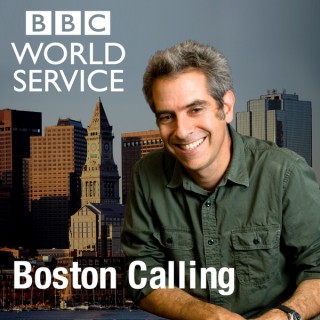Podcast appearances and mentions of cj chivers
- 5PODCASTS
- 6EPISODES
- 35mAVG DURATION
- ?INFREQUENT EPISODES
- Jan 3, 2020LATEST
POPULARITY
Latest podcast episodes about cj chivers
It's almost been 20 years since the war in Afghanistan started. The Afghan people want a solution and the US is trying to make a deal. Everyone wants to forge a pathway towards peace and stop the threat of nearly daily violence. Currently, peace talks between the US and the Taliban are developing and could be at an important stage. Also, a cache of previously unpublished documents, including interviews with top US policy makers, describe many of the failures from the war in Afghanistan. The White House’s former top advisor on Afghanistan, Douglas Lute, and a former anti-corruption officer at the US Embassy in Kabul, Sarah Peck, share their thoughts on the Afghanistan papers; As a US military veteran, author CJ Chivers shares his unique perspective on the Afghan war; and Feroza Mushtari grew up during the Taliban era, but she has become a force for change in the country's maternal health system. (US Special Representative for Afghanistan Reconciliation Zalmay Khalilzad attends the Intra Afghan Dialogue talks in the Qatari capital Doha. Credit: Karim Jaafar/Getty Images)
CJ Chivers, award-winning New York Times journalist and best-selling author, joins for this episode to discuss his new book, The Fighters. In it, Chivers seeks to tell the story of America's post-9/11 wars not from a policy or strategy level, but from the perspective of the junior officers, noncommissioned officers, and soldiers who fought them. (Note: This episode was originally released in 2018.)
Ep. 61 – Iraq and Afghanistan Through the Eyes of the Men and Women That Fought There
CJ Chivers, award-winning New York Times journalist and best-selling author, joins for this episode to discuss his new book, The Fighters. In it, Chivers seeks to tell the story of America's post-9/11 wars not from a policy or strategy level, but from the perspective of the junior officers, noncommissioned officers, and soldiers who fought them.
Children born on Sept. 11 are old enough to fight in the war that began that day. When they go into battle, they will only know the video of the Twin Towers falling, of the Pentagon wounded and smoking, as historical footage, much like the Zapruder film of the Kennedy assassination looks to an earlier generation.Will they know why they’re fighting in Iraq in Afghanistan? Do we still know?CJ Chivers of The New York Times joins us to talk it through.You can listen to War College on iTunes, Stitcher, Google Play or follow our RSS directly. Our website is warcollegepodcast.com. You can reach us on our Facebook page: https://www.facebook.com/warcollegepodcast/; and on Twitter: @War_College. See acast.com/privacy for privacy and opt-out information.
In the latest installment of From the Editor’s Desk, Military.com managing editor for news and Kit Up! blogger Christian Lowe speaks with C.J. Chivers of the New York Times about his new book “The Gun.” Chivers -- who is a...
It is one of the most widely recognizable weapons in the world, carried by more than 50 national armies and an array of police, intelligence and security agencies. The Kalashnikov, branded the AK-47, is durable, cheap to make, easy to conceal and deadly. But where did it get its start, and how did it make its way across the globe? Author and New York Times correspondent CJ Chivers will discuss the history of the world’s most infamous firearm. Pulling from interviews with and the personal accounts of insurgents, terrorists and child soldiers, Chivers will explore the history of the Kalashnikov and its role in the evolution of modern warfare. Along the way he will document the experience and folly of war, and challenge both the enduring Soviet propaganda surrounding the AK-47 and many of its myths.








